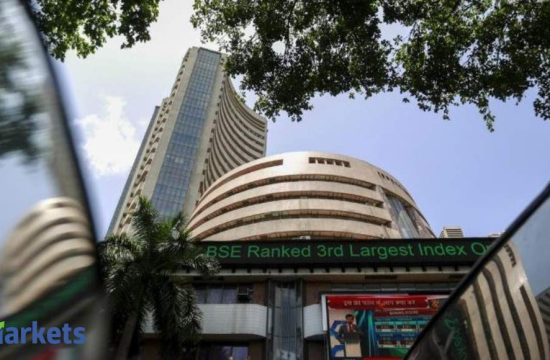
We have completely transformed ourselves to be a completely all-digital model, says Vijay Chandok, MD & CEO.
The lockdown has translated into higher investor activity within the retail space. What is the kind of trend that you are observing?
Clearly, there are a few things coming out. One is that the retail participation is increasing. When you look at the average daily turnover on the cash equity side, the market stands up by about 50% or 40%. In our firm, it is a little higher than that. So we have been seeing a very strong retail participation coming in.
Secondly, the number of government customers have started becoming active. So if I compare sequentially, there is clearly a 20-25% uptick there and when I compare it with a slightly older period, it is actually more than 50%. So that is the other trend we are seeing.
A third very interesting area that is seeing development is that the number of customers who are comfortable getting on-boarded digitally on platforms like ours has started increasing. We have actually doubled the numbers post the lockdown. We used to run a physical plus digital model. We have completely transformed ourselves to be a completely all-digital model and those are the numbers which have started increasing.
Also, a number of investors who probably are not as digitally savvy are quite happy to get on-boarded on what one calls an assisted digital. So they are happy to get guided to begin with on a telephone call, do their bit, get on to the platform and then slowly learn and then start becoming self corrected in their own way. So these are some of the areas and trends that we are seeing in the market amongst the retail investors.
Do you see investor interest sustain going forward as well? What is causing the strong traction that we have seen even at a time like this and what is the increase that you have seen in the last couple of months even in terms of volume?
Before we went into lockdown, the markets were virtually hitting all time high. Nifty was around 12,400 and in a very short period of time we saw a very dramatic correction. In a few sessions, the market crashed to close to about 7,500 on the Nifty; that is about 40% off the table. When investors saw this volatility and valuation of historically very strong players coming down so dramatically and many companies hitting their multiyear lows, they found these levels pretty attractive to enter.
Secondly, in terms of behaviour, we also see that whenever times are volatile, the investors who are regular traders tend to get hyperactive. So volatility has led to their participation in a more vigorous way. And then you also have another set of investors, who one can call them as traditional measured investors, who are not into the market on a daily basis but they are the investors who are doing their own fundamental analysis and then taking positions on certain counters and certain stocks and then gradually building up a position. So these are players who suddenly find that their assumptions are going awry and their portfolios need to be rebalanced. Sometimes they see an opportunity to exit certain counters or even take positions in certain counters; so they are entering into the market who otherwise are more measured.
And then finally the third segment which are people or investors who always wanted to invest in the markets but somehow missed the opportunity because the markets ran up and found themselves in a very interesting spot where markets are down at multi-year lows using this opportunity to enter. I would also believe that many of them are working from home. In fact all of them are working from home particularly in the month of March and April probably giving them time to think about and reflect on things and look at the opportunity. I believe a combination of all these things: sharp correction, availability of time, assumptions going awry and the volatility is contributing to active retail participation.
Have brokerage rates also gone lower because you have a disruptive player like Zerodha who has created a Jio moment in the brokerage industry. What is happening on the brokerage rate front?
Clearly when you look at yield on brokerage, it is certainly going southwards. However, look at the aggregate ARPUs at a customer level for particularly people like us who are I would say a broad-based player. What I mean by this is it is not just about equity business for us. We are there across the spectrum of investment. But in addition to that a player like us is also playing the entire life stage needs of an investor. It is the same investor eventually who is looking for protection. That is another large under-penetrated market; life protection, heath protection, asset protection are areas that our customers look for and we are able to provide them digitally with a network of partners. We are also moving quite actively into meeting the borrowing needs of investors by tying up with our partner ICICI Bank for distributing their loan products. So it is fundamentally spanning life stage needs, financial needs digitally delivered and through an open architecture platform that we are doing. So for players like us, it is a diversified play and it is getting more and more at an ARPU level than at yield for production.
You are in a very good spot. More digitisation means better yields and business coming back means operating leverage would kick in. With fixed deposit rates coming down and with banks offering less yields on their bank deposits, one would imagine that the migration to equities and debt products of mutual funds will only increase. So can we say the Covid crisis in a sense has really benefited you?
There are at least two-three trends which are in favour of people like us. Digitisation as you correctly said and increasing outcomes of behaviour changes leading to perhaps greater diversion towards savings as an asset class. So when savings tend to take centre stage, it benefits players like us. Even before we came into the Covid crisis, we had started seeing in this industry some degree of consolidation. All these are in some sense structural tail winds.









